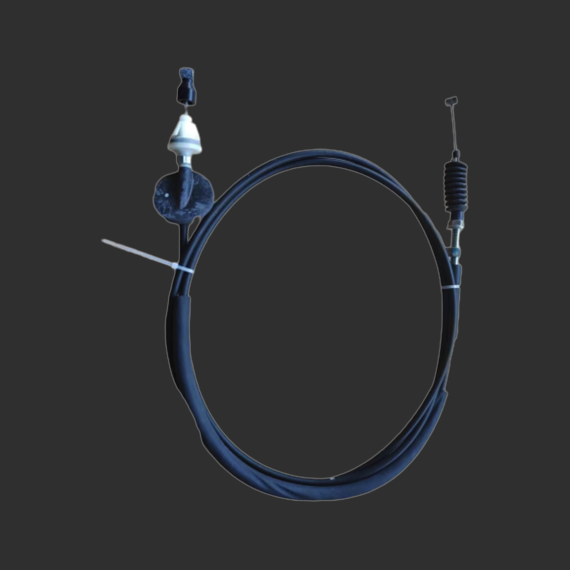Hydraulic Clutch System Components and Maintenance Tips for Optimal Performance
Understanding Hydraulic Clutch Lines Function and Importance in Modern Vehicle Systems
In the world of automotive engineering, the hydraulic clutch line plays an essential role in the operation of modern vehicles, particularly those equipped with manual transmissions. Understanding its function, components, and significance can enhance our appreciation of how vehicles operate and improve their performance.
What is a Hydraulic Clutch Line?
A hydraulic clutch line is a crucial component in the hydraulic clutch system of a vehicle. It serves as a conduit for hydraulic fluid, transmitting pressure from the clutch master cylinder to the clutch slave cylinder. When a driver presses the clutch pedal, the master cylinder generates hydraulic pressure that travels through the line, engaging or disengaging the clutch, thereby allowing for smooth gear transitions.
Components of the Hydraulic Clutch System
The hydraulic clutch system consists of several key components
1. Clutch Master Cylinder This is activated when the driver presses the clutch pedal, converting mechanical force into hydraulic pressure. 2. Hydraulic Line This is the line that carries the hydraulic fluid from the master cylinder to the slave cylinder. 3. Clutch Slave Cylinder This acts on the clutch mechanism, disengaging the clutch when hydraulic pressure is applied. 4. Hydraulic Fluid This fluid is essential for transferring pressure and must be maintained at appropriate levels to ensure optimal performance.
The Function of the Hydraulic Clutch Line
The hydraulic clutch line serves several vital functions
- Fluid Transmission It ensures that the hydraulic fluid flows smoothly from the master cylinder to the slave cylinder. - Pressure Regulation As the fluid transfers, it maintains a constant pressure necessary for effective clutch operation. - Flexibility and Durability Made from flexible materials, the line can handle the movements and vibrations within the vehicle while resisting wear and tear over time.
Advantages of Hydraulic Clutch Systems
hydraulic clutch line

Hydraulic clutch systems, including hydraulic clutch lines, offer several advantages over traditional mechanical systems
1. Smoother Operation The hydraulic mechanism allows for smoother engagement and disengagement of the clutch, providing a better driving experience. 2. Reduced Effort Hydraulic systems require less physical effort to operate compared to their mechanical counterparts, making it easier for drivers to change gears. 3. Reduced Wear The consistent pressure provided by hydraulic systems can lead to reduced wear on clutch components, promoting longevity.
Common Issues with Hydraulic Clutch Lines
Despite their many advantages, hydraulic clutch lines can experience problems that may affect vehicle performance. Some common issues include
- Leaking Fluid This is often the result of wear and tear on the line or connections, which can lead to decreased hydraulic pressure and poor clutch performance. - Air Bubbles Introducing air into the hydraulic system can lead to a spongy clutch feel, indicating the need for bleeding the system to remove air pockets. - Clogging Over time, contaminants can accumulate in the hydraulic line, restricting fluid flow and affecting clutch operation.
Maintenance Tips for Hydraulic Clutch Lines
To ensure the reliable operation of hydraulic clutch lines, regular maintenance is essential. Here are some tips
1. Inspect Regularly Check the hydraulic lines for any signs of wear, cracking, or leaks. 2. Fluid Levels Regularly check and maintain proper levels of hydraulic fluid to ensure optimal performance. 3. Bleed the System If you notice a spongy clutch pedal, consider bleeding the hydraulic system to remove air pockets. 4. Replace When Necessary If you detect leaks or other serious issues, it's crucial to replace the hydraulic line promptly to avoid further damage.
Conclusion
Hydraulic clutch lines are a vital part of a vehicle's hydraulic clutch system, facilitating smooth shifting and enhancing driving comfort. By understanding their function and maintaining them properly, drivers can enjoy a more efficient and reliable vehicle. As automotive technology continues to evolve, the importance of every component, including the humble hydraulic clutch line, remains integral to vehicle performance and driver experience.
-
Workings of Clutch Pipe and Hose SystemsNewsJun.04,2025
-
The Inner Workings of Hand Brake Cable SystemsNewsJun.04,2025
-
The Secrets of Throttle and Accelerator CablesNewsJun.04,2025
-
The Hidden Lifeline of Your Transmission Gear Shift CablesNewsJun.04,2025
-
Demystifying Gear Cables and Shift LinkagesNewsJun.04,2025
-
Decoding Clutch Line Systems A Comprehensive GuideNewsJun.04,2025
